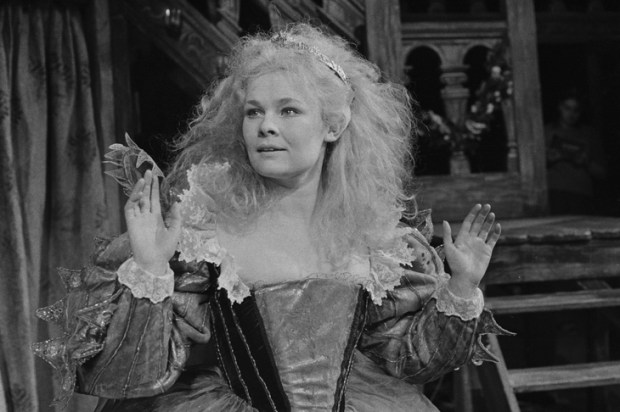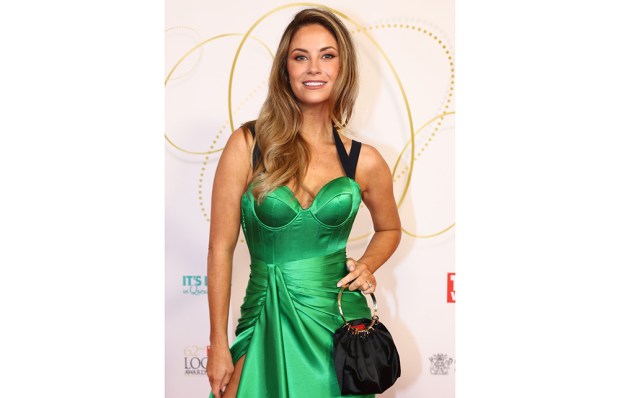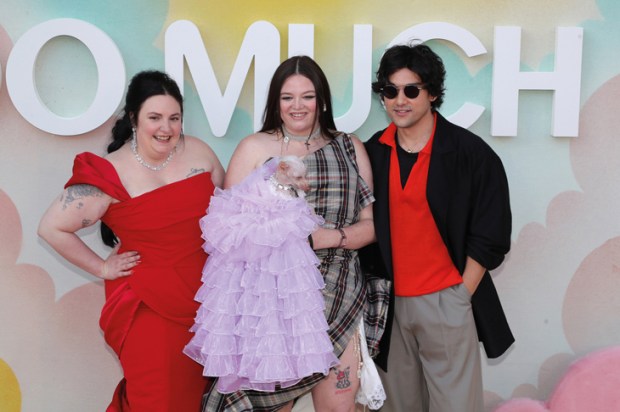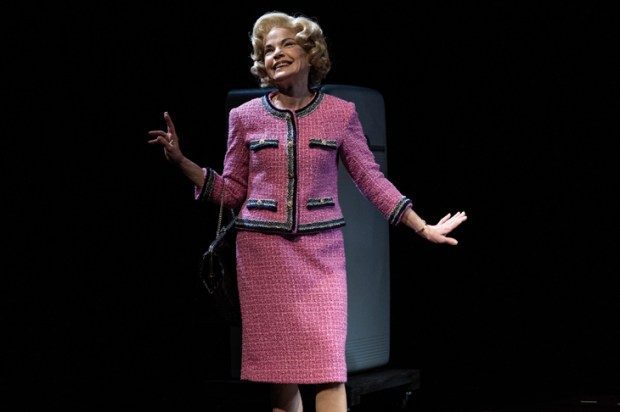It seemed, on the face of it, a bizarre idea: opera at the Margaret Court arena. And Opera Australia was facing the challenge of the State Theatre being closed for the next four years by taking a production by Edward Dick of Opera North in Britain of Puccini’s extraordinary musical melodrama Tosca – arguably the most dramatic work in the whole operatic canon – and presenting it on a raked stage with the orchestra playing above the action and with the latter stripped bare of the scenic fripperies of Rome at the time of the Napoleonic war. On opening night, Friday 24 May, it was weird but enlivening to see the range of first-nighters in this sports arena (some in long dresses and black tie). Mercifully Jo Davies’ Opera Australia put the roof back on which created a sense of a separate world. The performance had Karah Son in the title role who exhibited the grandest range and depth, Robert Hayward as Scarpia all silk and snakiness and Diego Torre who sang Cavaradossi with what can only be described as consummate grandeur. As the season continued it had alternate casting including Nadine Warwick Fyfe as Scarpia. Jo Davies is a great believer, she says, in highlighting local talent rather than falling back on imported stars. She’s a far cry from Lyndon Terracini who invited Julie Andrews to direct My Fair Lady.
Well, it has to be admitted that the Melbourne crowd at Tosca managed to simulate a classic opera crowd. There was Mark Dreyfus, the Attorney-General, looking urbane and relaxed and there was Michael Shmith the man who arguably knows as much about opera as anyone alive and who has written about it as astutely and accessibly as anyone in the history of this country.
It would be interesting to know what he made of the performance by Richard Tognetti’s Australian Chamber Orchestra of Mahler’s Song of the Earth. It was preceded by Wagner’s Siegfried Idyll arguably less suited to a limited orchestration. And the Mahler was the version adapted for a string quintet using the Schoenberg version and it drew ecstatic reactions from those who heard it. Catharine Carby sang the female role – famously recorded by Kathleen Ferrier with Bruno Walter – with a lustrous energy and Stuart Skelton one of the world’s great tenors who has recorded with Simon Rattle sang with a staggering brio even if his voice had been in the wars. But it’s amazing what Tognetti achieves with deliberately restricted resources.
It was fascinating to see David Hallberg, the head of the Australian Ballet, which is also without a home for the next few years, take up arms against critics carrying on about the height of two of his principals Bene Bemet and Joe Caley. Hallberg is an utterly formidable head of an artistic company and anyone who has spent a day at the Ballet is made aware of the self-possessed brilliance of this man (the first American to dance as a principal with the Bolshoi) who negotiates so adeptly the dialectic between modern dance and classical ballet – never for a moment surrendering the claims of the traditional but constantly aware of every aspect of modernity at the same time.
The music director and chief conductor of Orchestra Victoria Jonathan Lo describes David Hallberg as the Michael Jackson of classical ballet and that captures his complexity and his authority. As it happens he took up arms against a journalist who had criticised the two dancers who were the leads in the Swan Lake we saw in rehearsal and in conversation.
Benedicte Beme and Joe Caley were an utterly earthy, wry, down-to-earth duo and you trusted implicitly David Hallberg’s sense of how they could lead a formidable national ballet company.
If David Hallberg thinks the comments about their height were inappropriate and unhelpful he will be right, it’s as simple as that. Everything he does is considered and deliberate, he is a man who thrives on the challenge of difficulty. It’s impossible to not feel in his presence the intelligence and depth of feeling of a great artistic director and there is every reason to simply take him on trust with an issue like this. He’s someone you could trust to lead an invasion, never mind a dance troupe.
In its way that’s true of the Irish novelist Brian (pronounced Bree-An) Moore who was once Graham Greene’s favourite contemporary novelist. Brian Moore wrote Black Robe which Bruce Beresford directed brilliantly pitting the voices of the Algonquin and the Iroquois against that of the Black Robe, the Jesuit brilliantly played by Lothaire Bluteau who captures the deliberate modesty of a naturally self-confident religious person.
Another of his books No Other Life set in a fictional version of Haiti is the story of a modern saint who seeks to lead as Jesus led by not leading. Brian Moore captures the matchless charisma of a man who can send the poor out into the streets armed with machetes and crying that he is the Messiah. There is a constant emphasis on Diderot saying fanaticism is the first step towards barbarism and there is also the lack of comfort of a priestly narrator whose religious mother dies without consolation.
No Other Life is a work of tragic pessimism which also contains the richness and colour, the embodied sparkle of a man of God who is also some kind of political genius. Brian Moore is a writer with a flawless command of action with no word wasted. He died in 1999 but you can understand how the Irish novelist John Banville detested Graham Greene’s backing of him because it was difficult for anyone to hold a candle to him. He writes about ‘a condition of complete simplicity costing not less than everything’ in Eliot’s phrase. A complexly religious writer with a great coolness of effect a bit like Greene’s other favourite, the great Muriel Spark.
You would not make the same claims for the recent New Zealand film Punch but what a stunner it is at its best. There’s a gay Māori boy, Conan Hayes, who is bullied then raped and his beautiful boy boxer mate, Jordan Oosterhof, who wants to win the fight for his alcoholic dad, played by Tim Roth. Punch has an imperfectly articulated plot but at its best it has extraordinary beauty and emotional reality.
Got something to add? Join the discussion and comment below.
You might disagree with half of it, but you’ll enjoy reading all of it. Try your first month for free, then just $2 a week for the remainder of your first year.













